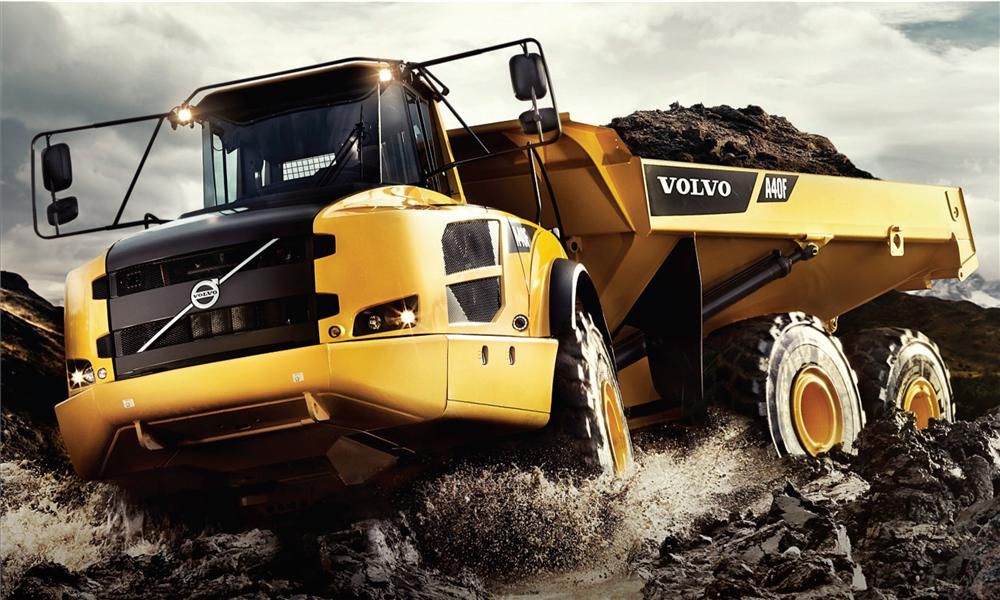As well as being at the forefront of 21st century passenger car concept and design, Volvo is also engineering a range of heavy haulage vehicles and equipment which is set to change the way we think about the traditional construction site.
This year, Volvo Construction Equipment hosted the Construction Climate Project, as part of international construction trade show, Connexpo in Las Vegas, which aims to promote environmental awareness, enhance collaboration, and share best practices throughout the construction industry value chain.
With this, comes a fleet of new vehicles and equipment, from electric and hybrid trucks, to automated machines and equipment. Currently in design, is a hybrid wheel loader, a cabless, driverless hauler, as well as electric and hybrid trucks, which are due for rollout in 2019. While these may seem futuristic now, Volvo expects these to become an integral part of the construction site of tomorrow, bringing with them benefits such as improved safety, reduced costs, and increased productivity, not to mention the significant impact on the environment and sustainability for the future.
Volvo’s research and design concepts are showing some remarkable results, with early experiments utilising the electrified and autonomous machines showing a 95% reduction in the amount of CO2 on site than where traditional machinery is used.
A significant change in this new equipment and machinery are the engines, which have been greatly improved and modified in recent years. Additionally, batteries and solar panels have also been introduced onto the machines themselves with battery recharge taking just one minute! Volvo’s new autonomous vehicles will run on a cycle of about six minutes – five of which are spent on loading, travelling, and dumping the load, the other spent charging. And the machine self-charges automatically, with no human interaction required. This new technology reduces the power needed from the diesel engine, lowers fuel consumption significantly and limits the environmental impact.
Another benefit these new machines bring is a reduction in noise pollution. Even when in full throttle, the hybrid machines operate almost in complete silence. This advance not only provides a safer, more pleasant work environment for employees, it is means these construction machines and equipment will likely be more welcome on urban sites where noise and pollution can be an issue.
This new equipment and machinery is not only greener, it is safer, which is particularly advantageous given the hazardous conditions on construction sites and high level of workplace injuries. With the introduction of autonomous technology, less physical labour is required on site – instead, operators can stay out of harm’s way and operate machinery remotely offsite. Volvo CE also expects an upskilling of workers here too – instead of employees sitting on a machine for eight hours a day, they will be in an office, operating several machines at a time, meaning work will be more skilled.
Volvo CE’s new autonomous machines are also fitted with sensors, GPS and 3D laser scanning that not only map the route of the vehicle, they also monitor the surroundings, picking up any movement and stopping the machine when an obstacle is observed. These technological advancements also mean greater accuracy and precision, with the vehicles able to avoid accidents more effectively than a human driver can.
With the advantages offered by electrification and autonomous machines, in terms of meeting environmental concerns, lowering CO2 emissions and noise pollution, reducing operator costs, improving safety and providing a more pleasant working environment, this is one revolution that is unlikely to meet much opposition.




